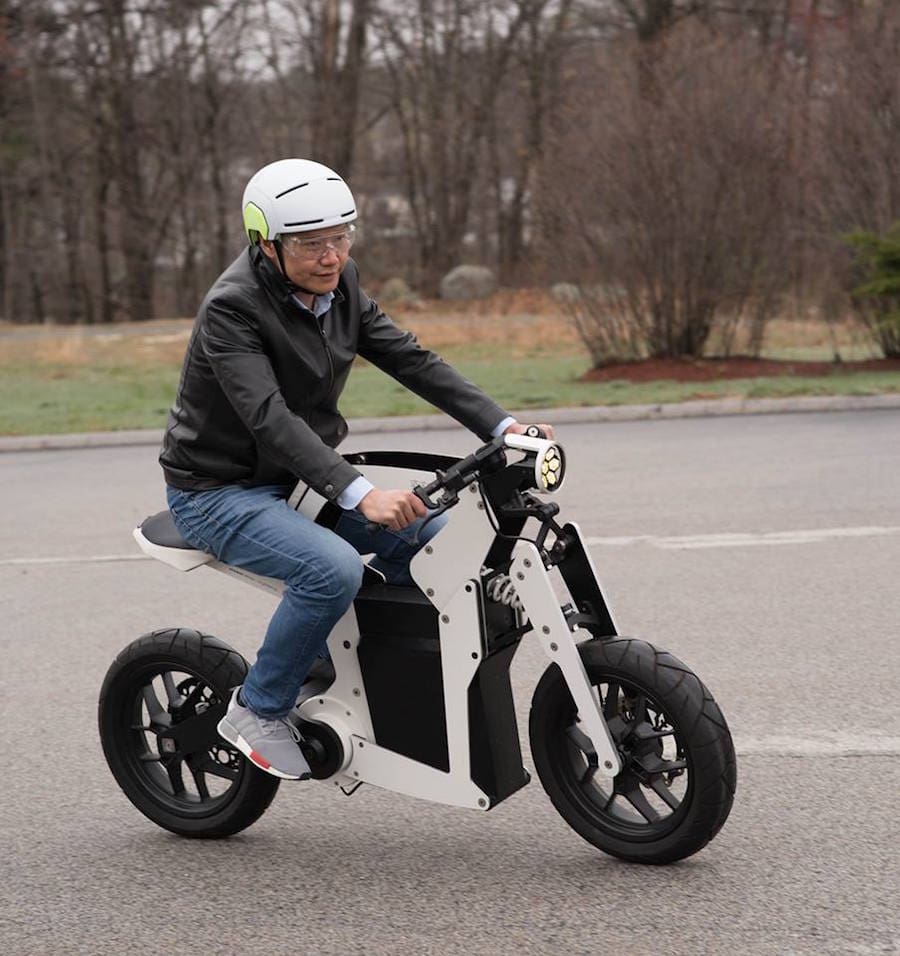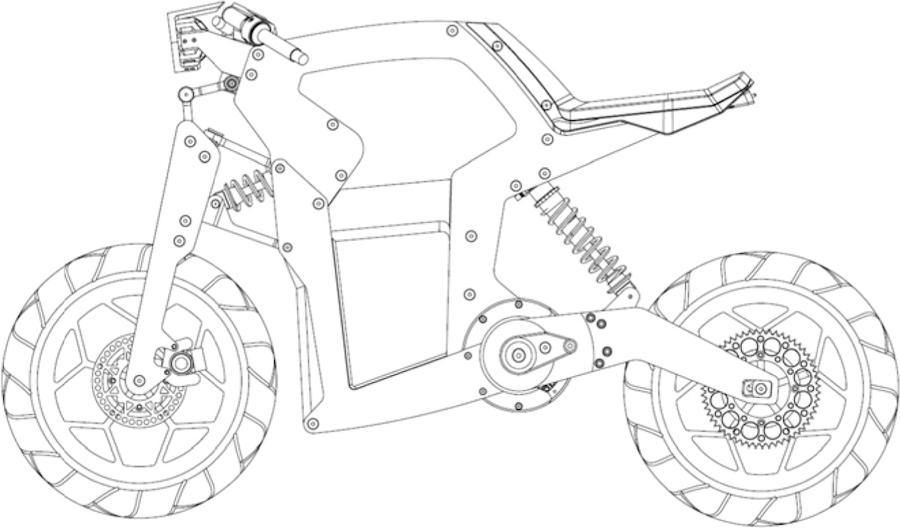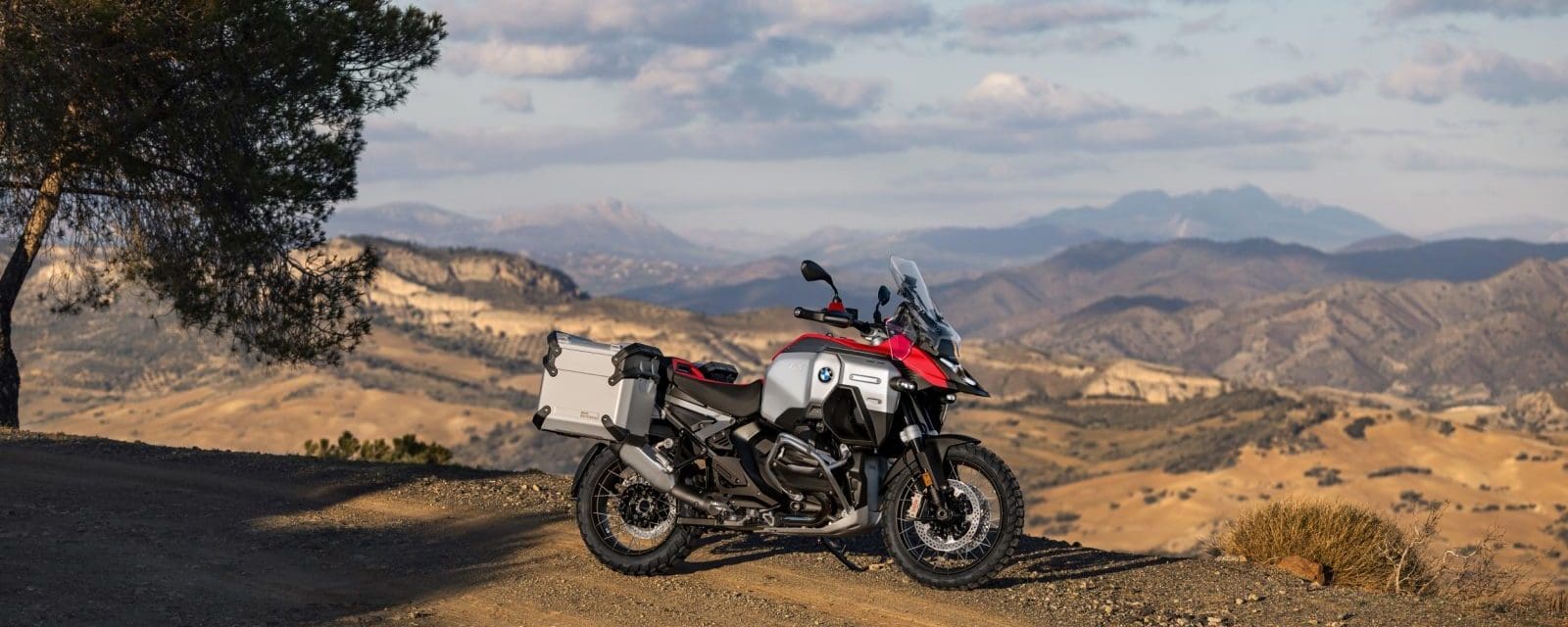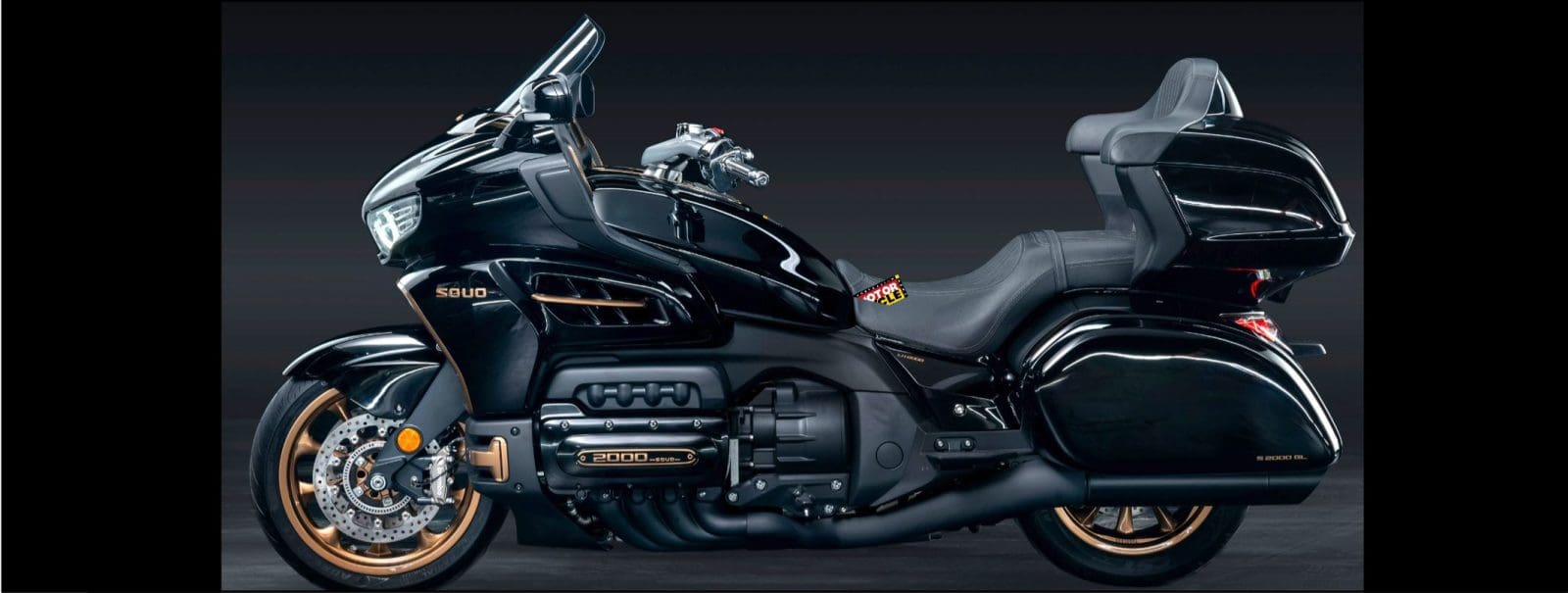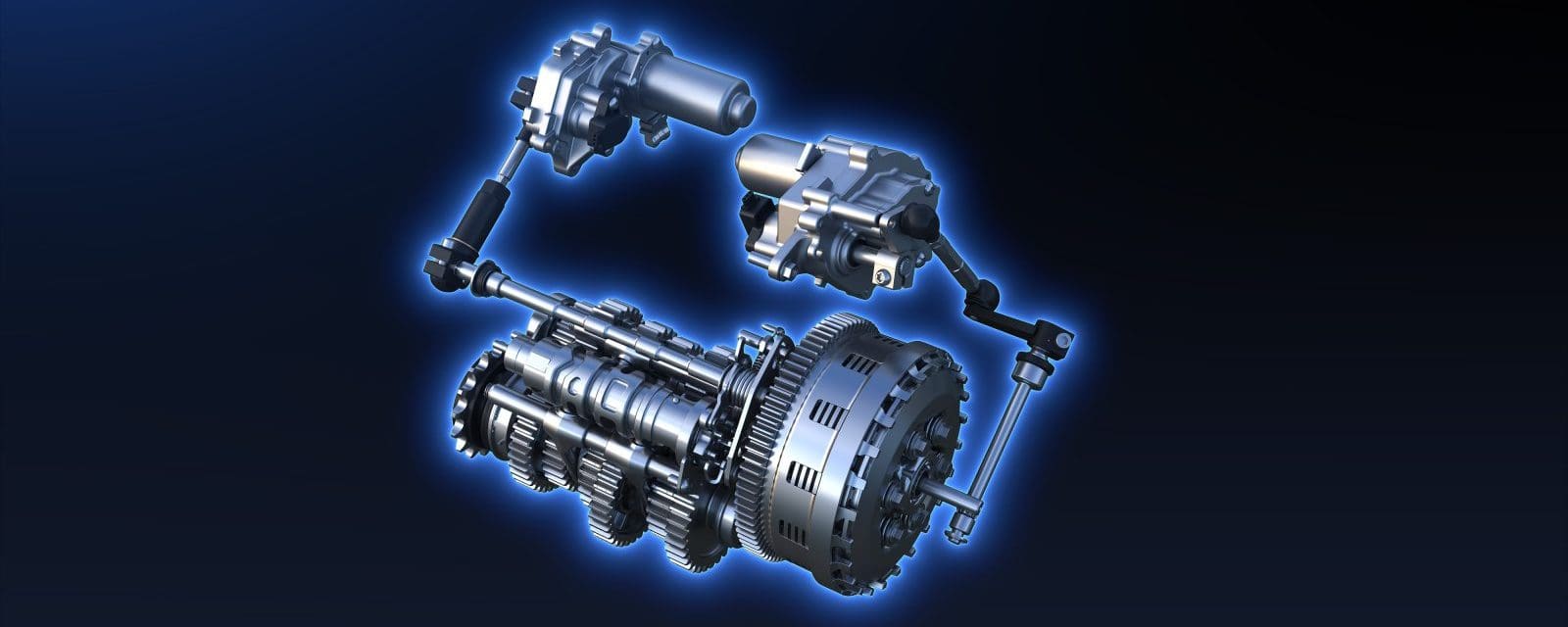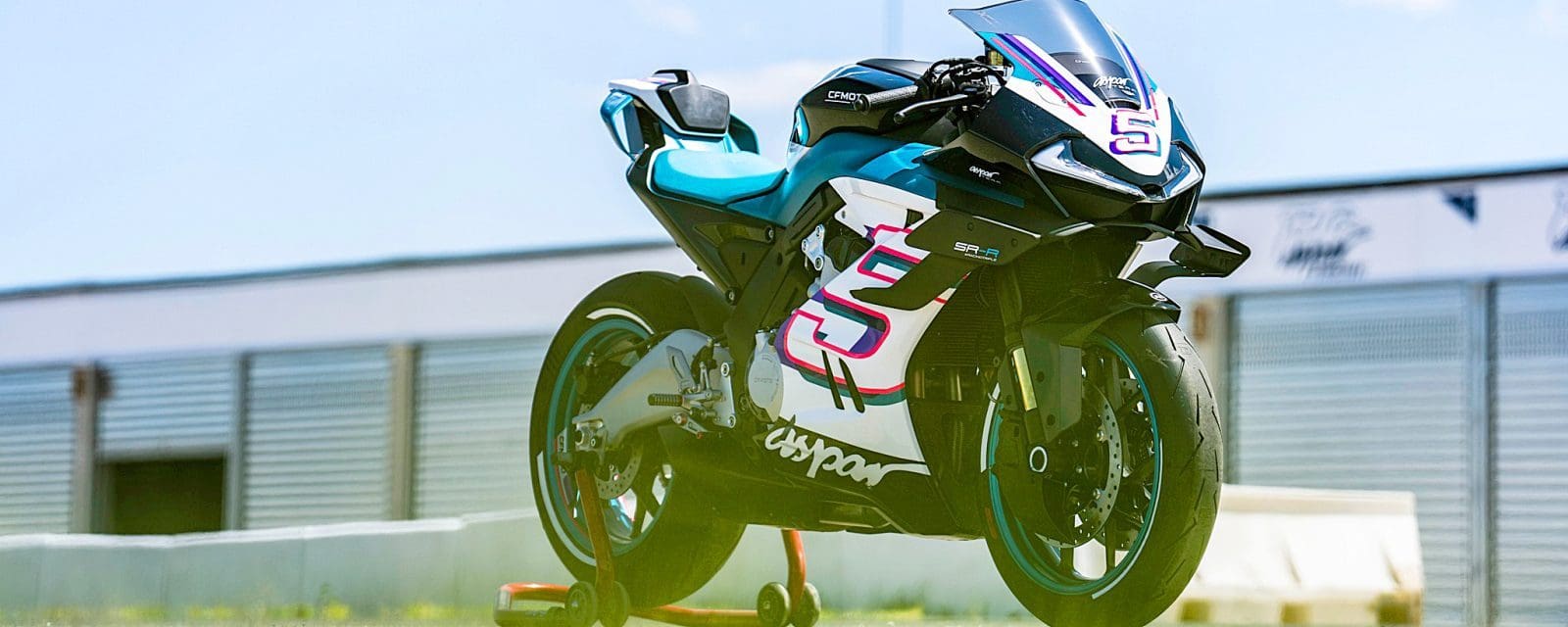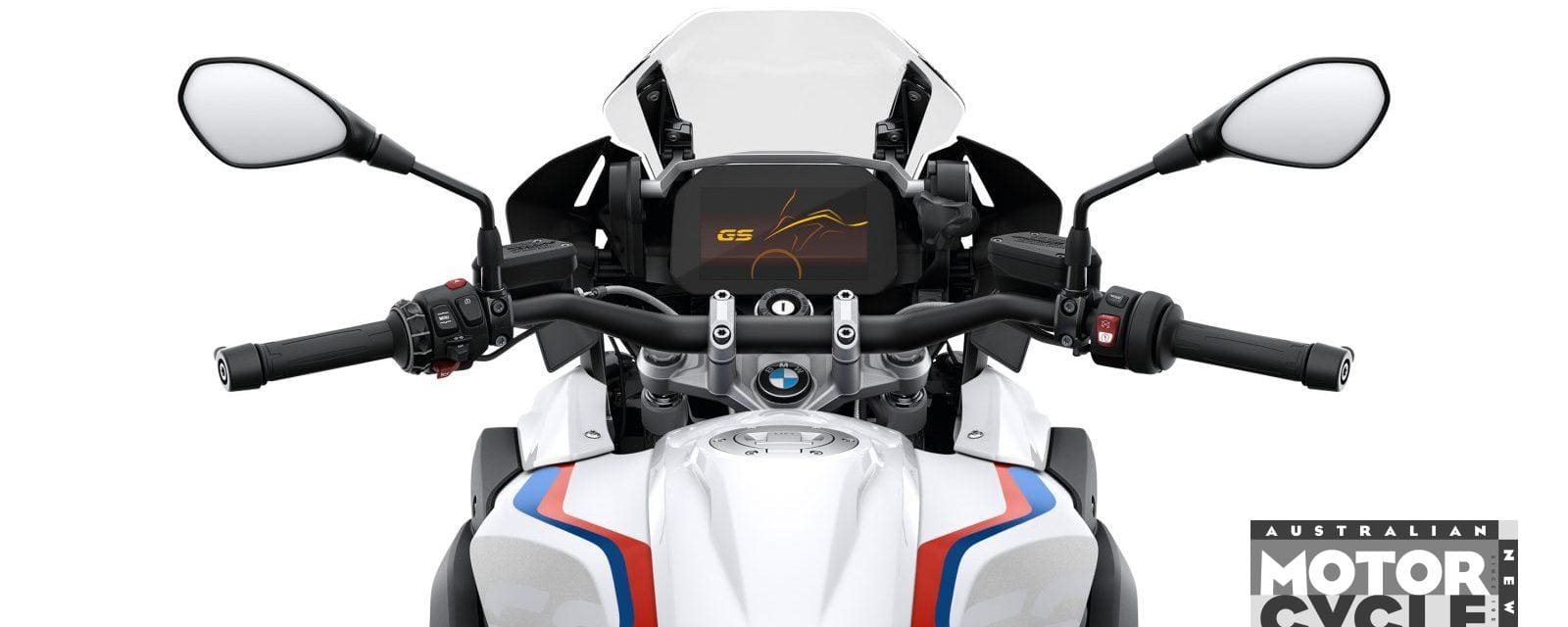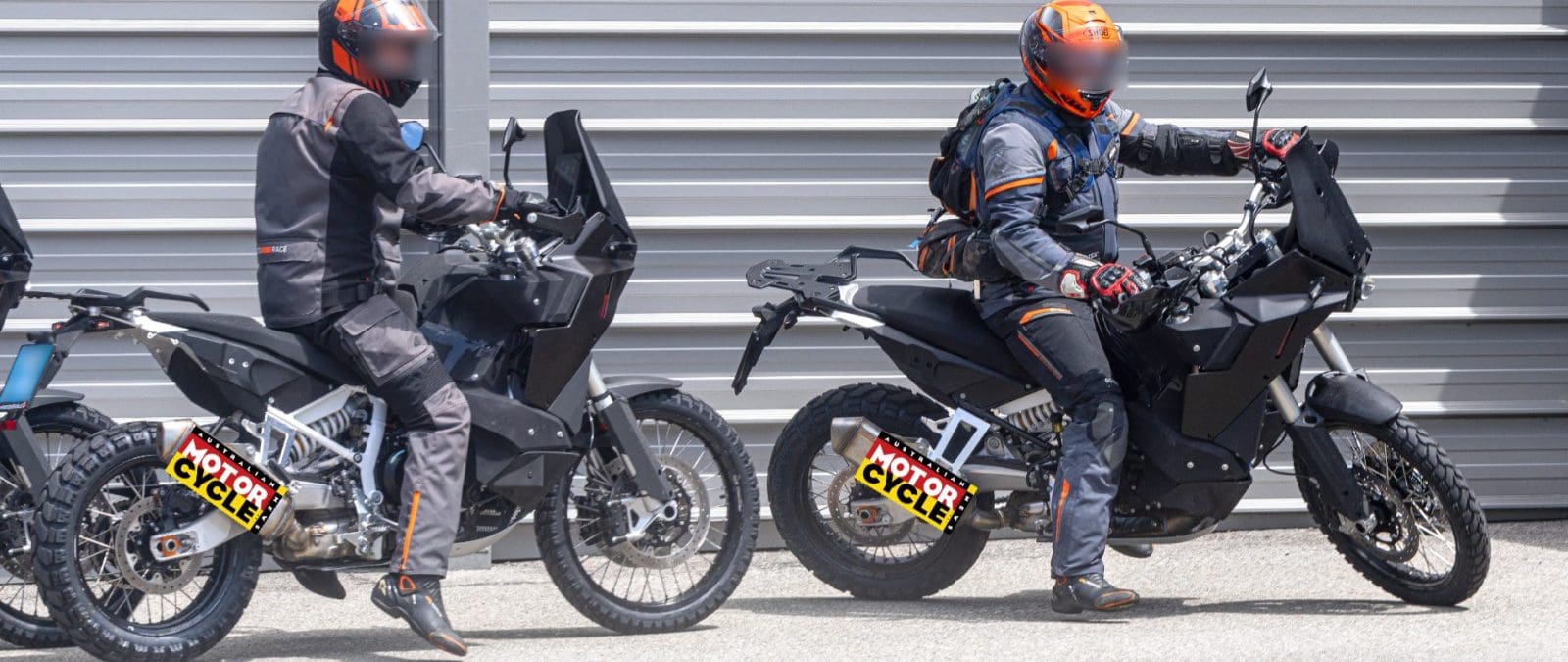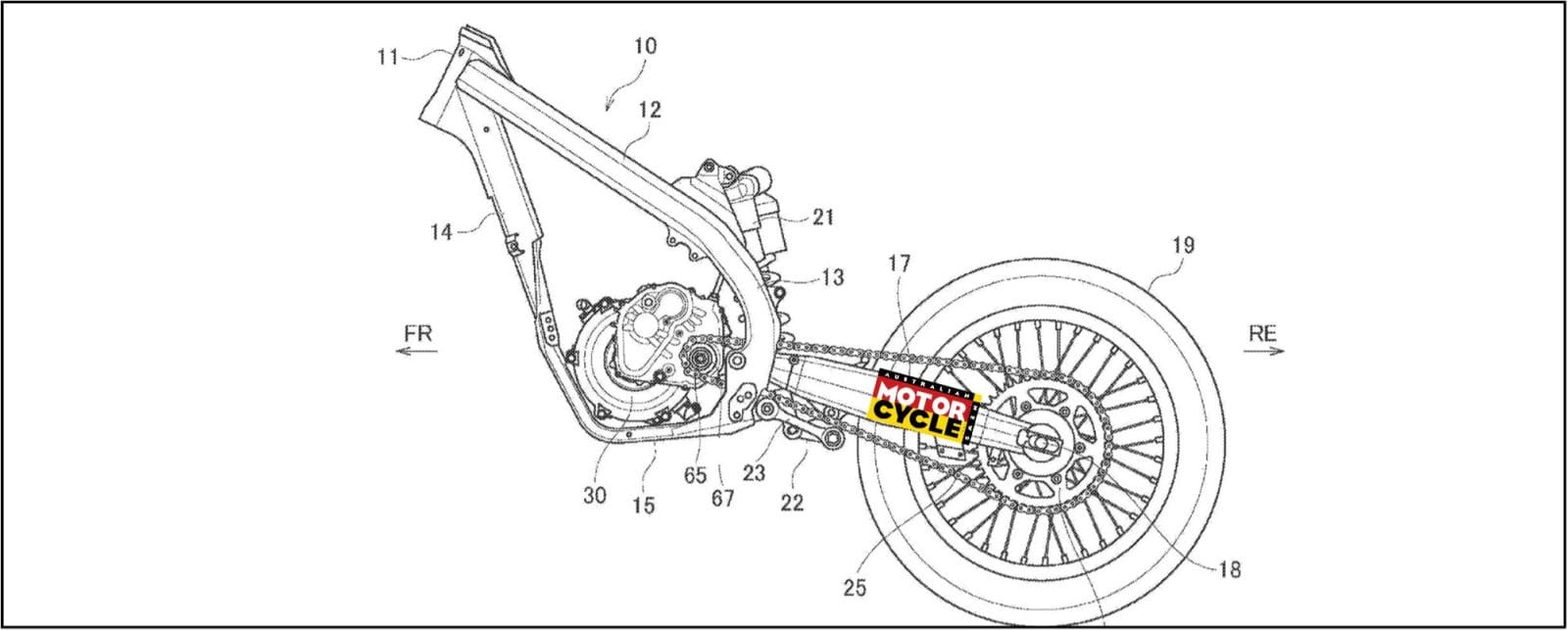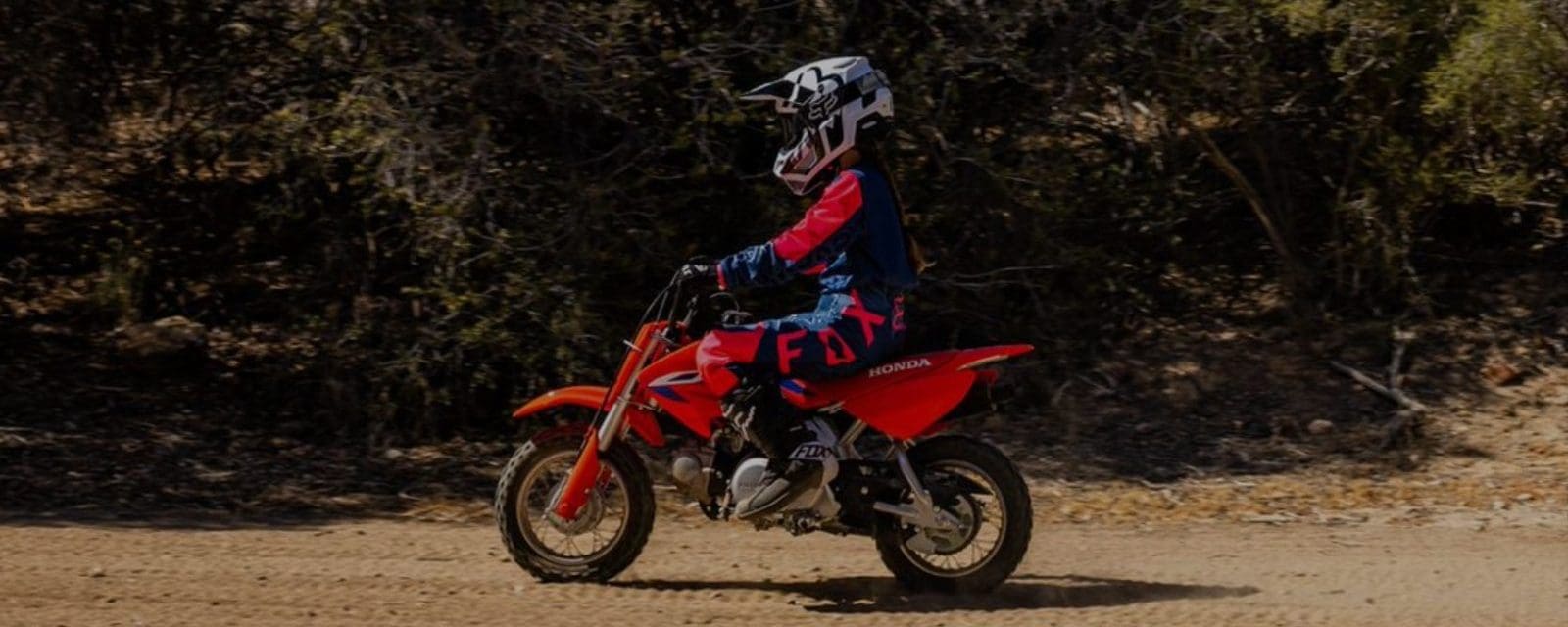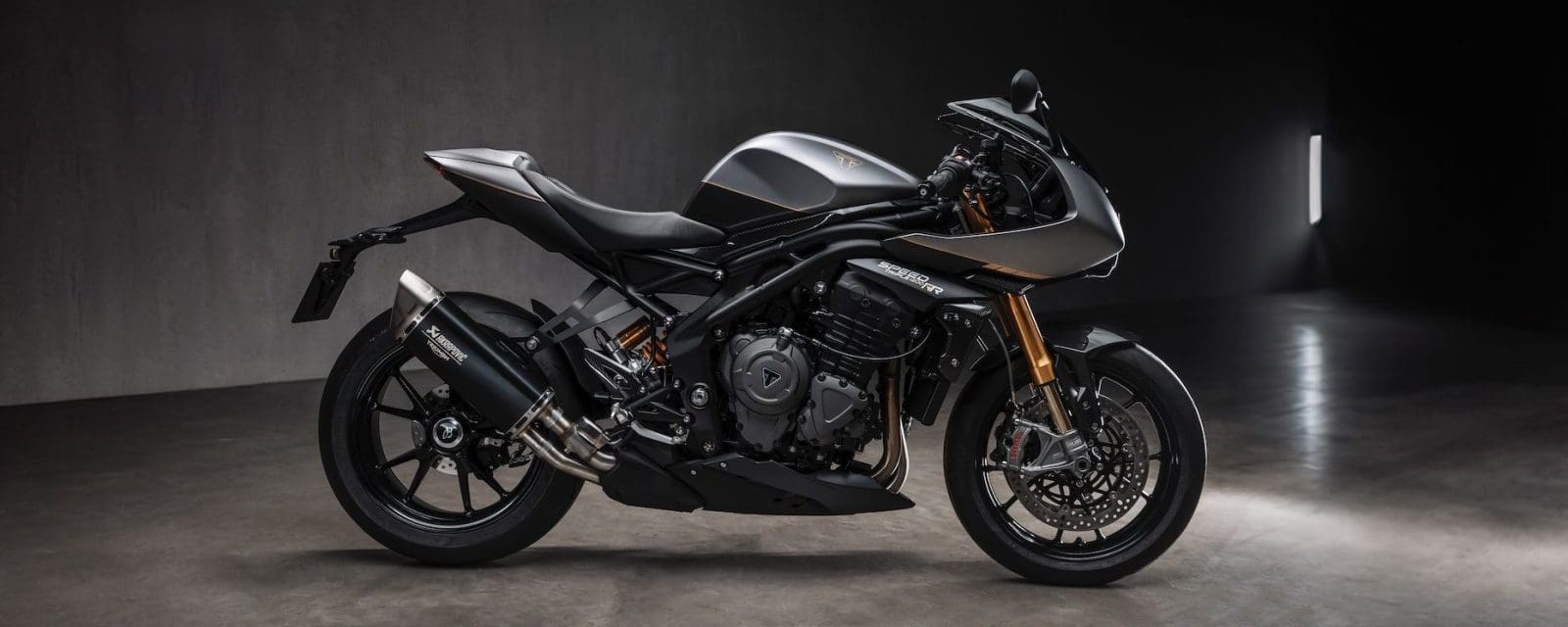The front suspension is a Hossack-style girder arrangement, but it appears the design choice has been driven by an attempt to make sure the bike is made almost entirely of flat material, which we understand to be sheet aluminium.
The mechanical side of the bike includes an electric motor mounted concentrically with the swingarm pivot, ensuring constant chain tension.
Monoshocks provide the suspension at each end, with a couple of tubular wishbones holding the fork girders to the main frame.
With the flat sheets and all the sections of the frame and swingarm bolted together, the bike could easily be supplied in flat-pack form.
Two identical battery packs sit between the frame sides and don’t appear to be easily removable, so it’s likely they’ll need to be charged in situ.
The front and rear tyres appear to be identical in size, and the overall shape of the bike suggests small dimensions, similar to a Honda Grom.
The controls are simplified, with just a single lever on the right-hand bar that presumably operates a linked braking system. There are no foot controls.
Although some of the patent images show a headlight, tail-light and additional side covers over the batteries, there’s no sign of mudguards, instruments, mirrors or the licence plate bracket that would be needed to make the machine road legal.
The new patent, just published in China, could be an indication that the machine is edging closer to getting the green light for production.
By Ben Purvis
